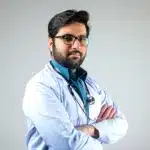The allure of studying medicine abroad has captivated the imaginations of countless aspiring doctors, offering not just an education but a passport to a world brimming with opportunities. From the prestige of world-class medical curricula to the promise of an international career, the journey of overseas medical study is both challenging and rewarding. It is a path that demands dedication and resilience but offers unparalleled professional recognition, cultural enrichment, and the chance to contribute to global healthcare. This article delves into the multifaceted benefits of pursuing medical education overseas and how it serves as a stepping stone to an international career.
Key Takeaways
- Studying medicine overseas provides exposure to advanced healthcare systems and global professional networks, enhancing career prospects.
- Cross-cultural competence is crucial in international medical practice, and overseas education fosters this through diverse patient interactions.
- Alternative education routes, like Fast Track MD Programs, offer accelerated pathways to medical qualifications with global recognition.
- Global accreditation of medical degrees ensures international career mobility and the ability to contribute to healthcare worldwide.
- Support systems such as educational consultancies and financial aid are vital in overcoming the challenges of studying medicine abroad.
Embarking on an International Medical Journey

Understanding the Educational Landscape
Embarking on the journey to study medicine overseas is an intricate process that requires a comprehensive understanding of the global educational landscape. Aspiring international medical professionals must understand licensing, secure financial aid, navigate admissions, and consider cultural aspects for a successful career abroad. Each country presents its own unique set of educational systems, entrance exams, and accreditation standards, which can significantly impact the trajectory of a medical career.
The educational landscape for medicine varies greatly from one country to another, with systems such as the British IGCSE and A-levels, the American holistic approach, and others offering distinct pathways. It is crucial for students to research and align their choices with their long-term career goals. Here are some general steps to help navigate this complex terrain:
- Research the educational systems and medical curricula of target countries.
- Understand the entrance exam requirements and prepare accordingly.
- Evaluate the accreditation and recognition of medical degrees.
- Consider the financial implications and seek scholarships or financial aid.
- Assess the cultural and language barriers that may influence your education.
The decision to study medicine abroad is transformative, promising not only a world-class education but also a gateway to international career opportunities. It is a commitment that demands resilience but offers a rich professional and cultural tapestry for those who are prepared to navigate its challenges.
Navigating Entrance Exams and Admission Criteria
Embarking on the journey to study medicine overseas begins with a critical step: navigating the entrance exams and admission criteria. These exams are a pivotal part of the application process, designed to assess a candidate’s readiness for the rigorous medical curriculum ahead. For example, the MCAT is a standardized test widely recognized in the United States and Canada, evaluating critical thinking, scientific knowledge, and problem-solving abilities.
Entrance exams not only gauge academic proficiency but also open doors to global education opportunities. It is imperative to understand the specific requirements of your chosen country and institution.
Here are some general steps to help you navigate this process:
- Research the entrance exam requirements for your target country and universities.
- Register for the exam well in advance to secure your preferred test date and location.
- Prepare thoroughly, utilizing official study materials and, if necessary, enrolling in preparatory courses.
- Take practice tests to familiarize yourself with the exam format and timing.
- Submit your scores to the universities as part of your application package.
Remember, the validity of exam results can vary, so it’s crucial to plan your application timeline accordingly. Additionally, some programs may offer alternative routes to medical education, bypassing traditional entrance exams for qualified candidates.
Transitioning from Undergraduate Studies to MD Programs
For many students, the journey from undergraduate studies to an MD program abroad represents a significant leap towards fulfilling their medical career aspirations. Navigating the transition requires a thorough understanding of the prerequisites and a strategic approach to meet the stringent admission criteria of international medical schools.
The process often begins with the MCAT, a standardized test that assesses problem solving, critical thinking, and knowledge of natural, behavioral, and social science concepts and principles prerequisite to the study of medicine. Here’s a brief overview of the steps involved:
- Research the specific MCAT and coursework requirements for your target medical schools.
- Ensure academic work, especially in sciences, is current, with recent coursework or professional experience in relevant fields.
- Consider combined degree options like MD-PhD, MD-MBA, or MD-MPH for an interdisciplinary education.
Transitioning effectively also means preparing for the clinical phase of education, which involves rotations in various medical specialties. This hands-on experience is crucial for developing clinical skills and integrating knowledge.
Lastly, alternative routes such as Fast Track MD Programs may offer a condensed medical education timeline, providing an accelerated route to the same qualifications. These programs often include US clinical experience, which can enhance residency match chances.
Building a Global Professional Network

Seeking Licensing Opportunities Abroad
For medical graduates looking to expand their horizons, seeking licensing opportunities abroad can be a pivotal step in their careers. The process often involves a thorough understanding of the licensing requirements in the target country, which may include exams like the USMLE, language proficiency tests such as the OET, and completion of a medical residency program.
The journey to obtaining a medical license in a foreign country is marked by a series of milestones, each requiring careful preparation and adherence to specific criteria.
To navigate this process effectively, consider the following steps:
- Identify the countries that allow foreign medical graduates to practice and understand their specific requirements.
- Prepare for and pass the necessary licensing examinations, which may vary from one country to another.
- Complete any required clinical rotations or residency programs in the host country to gain practical experience.
- Apply for the medical license and fulfill any additional requirements, such as language proficiency tests.
Remember, the path to practicing medicine internationally is not only about meeting the technical requirements but also about integrating into a new healthcare system and culture.
Gaining Experience through Volunteering and Observerships
Volunteering and observerships are essential for those looking to broaden their practical knowledge and immerse themselves in the healthcare systems of other countries. These experiences not only enhance clinical understanding but also provide a platform for international networking. By engaging in these activities, medical students and graduates can gain insights into different medical practices and patient care approaches.
Observerships, in particular, offer a unique vantage point to witness the day-to-day operations of foreign medical institutions without direct patient involvement. This observational role is crucial for adapting to new clinical environments and understanding the workflow within diverse healthcare settings.
To maximize the benefits of these opportunities, consider the following steps:
- Identify programs or hospitals offering observership or volunteer positions.
- Research the requirements and application process for each opportunity.
- Prepare and submit your application, ensuring to highlight relevant experience and objectives.
- Once accepted, engage actively with the medical team, asking questions and learning from the professionals you shadow.
These steps can lead to a significant enhancement of your medical CV and open doors to future career opportunities. Remember, the key is to be proactive and make the most of every learning experience offered.
Participating in Professional Development Programs
Professional development programs are a vital component of medical education abroad, offering students the chance to refine their skills and expand their knowledge. Engaging in these programs is essential for those seeking to stand out in the competitive field of medicine. They provide a structured environment for learning and growth, often including mentorship from experienced professionals.
- Leadership development workshops
- Seminars on healthcare advancements
- Mentorship opportunities
By participating in professional development initiatives, students not only enhance their clinical competencies but also develop leadership qualities that are highly valued in the healthcare sector. Networking opportunities that arise from these programs can lead to lasting professional relationships and career advancement.
The final year of study is particularly crucial, as it allows for specialization through elective rotations, thereby shaping the student’s future career path.
Caribbean medical schools, for instance, emphasize cultural competency, global networking, and clinical experience, which are instrumental in preparing students for international medical careers. These institutions often provide competitive tuition rates and robust support systems, making them an attractive option for many.
Alternative Routes to Medical Education

Exploring Fast Track MD Programs
Fast Track MD programs represent a compelling alternative for students eager to expedite their journey into the medical profession. These programs are designed to streamline the educational process, allowing students to enter the workforce sooner than their counterparts in traditional programs. One of the key advantages of Fast Track MD programs is the early clinical exposure they offer, which is crucial for developing practical skills and building a professional network.
The Fast Track MD pathway is an innovative approach that can lead to significant savings in both time and money, making it an attractive option for many students.
However, it is essential to consider the intensity of these programs. The condensed curriculum means a more demanding schedule and a heavier workload. Prospective students should evaluate their readiness to handle the rigors of such a program. Here’s a brief overview of what to expect from a Fast Track MD program:
- Direct entry into medical programs, often bypassing exams like the MCAT.
- A comprehensive curriculum that prepares students for medical education abroad.
- Opportunities for clinical rotations in internationally recognized hospitals.
- An accelerated route to becoming a doctor, with global recognition of the degree.
Ultimately, Fast Track MD programs offer a pathway that requires dedication and resilience but promises a quicker transition into the medical field.
Weighing Traditional vs. Accelerated Pathways
When considering a medical education, students are often faced with a choice between traditional and accelerated pathways. Traditional programs typically span over several years, allowing for a gradual immersion into medical studies. In contrast, accelerated programs, such as BS/MD programs, offer a more rapid transition by combining undergraduate and medical school education.
The table below outlines the key differences between these two educational routes:
| Aspect | Traditional Pathway | Accelerated Pathway |
|---|---|---|
| Duration | 8-10 years | 6-7 years |
| Clinical Exposure | Later in program | Early in program |
| Entrance Exams | MCAT, etc. | Often waived |
| Cost | Higher | Potentially lower |
| Curriculum Pace | Standard | Intensive |
Choosing the right medical education pathway is a critical decision that will shape your future career. It is essential to weigh the pros and cons, considering your personal circumstances and career objectives.
Ultimately, the decision hinges on factors such as the desired pace of learning, financial considerations, and the recognition of the degree in different countries. While accelerated programs can lead to an earlier start in the medical profession, they may also demand a higher level of commitment and resilience due to their rigorous nature.
Securing Residency and Specialized Training
The transition to residency is a pivotal moment for medical graduates, marking the beginning of specialized training. Securing a residency position is competitive and requires strategic planning. Innovative pathways in medical education, such as residency tracks, bypass traditional entrance exams, offering direct entry and financial aid opportunities. These tracks provide focused exploration of subspecialties, enriching the residency experience and preparing graduates for various career paths.
As residents progress, they encounter more specialized and elective opportunities, allowing for personalized educational pathways. Electives at key sites cover areas such as international emergency medicine and palliative care, among others. Here’s a snapshot of available residency programs and fellowships:
- Ophthalmology and Visual Sciences: Cornea, Glaucoma, Ophthalmic Plastic Surgery
- Orthopaedics: Adult Reconstruction, Spine
- Pathology: Cytopathology, Hematopathology
Strategic approaches enhance acceptance rates into medical programs abroad, providing a clear advantage in the competitive landscape of medical specialization.
Financial considerations are crucial when pursuing residency. Scholarships and financial aid can help manage the costs associated with advanced training. Ultimately, the choice of residency and fellowship programs should align with one’s career goals and financial capacity.
Cross-Cultural Competence in Medicine

Fostering Understanding of Diverse Health Beliefs
In the journey to become a globally competent physician, fostering an understanding of diverse health beliefs is paramount. Medical students studying abroad encounter a myriad of cultural perspectives that shape health behaviors and practices. It is essential to cultivate a deep appreciation for these differences to provide empathetic and effective care to patients from various backgrounds.
- Exposure to a diverse patient population
- Training in culturally sensitive communication techniques
- Ethical considerations in a global context
By engaging with different health belief systems, students learn to navigate the complexities of patient care in a multicultural environment. This not only enhances their clinical acumen but also enriches their personal growth and professional development.
The journey of adapting to advanced healthcare systems abroad is transformative, fostering not only medical knowledge but also personal growth and resilience.
To truly integrate this understanding into practice, medical programs abroad offer structured opportunities such as:
- Collaborative research projects with international peers
- Cultural competency workshops
- Role-playing scenarios to practice communication skills
These initiatives are designed to cultivate cross-cultural awareness and communication, ensuring that future healthcare professionals can maintain a diverse workforce and deliver patient-centered care.
Training in Culturally Sensitive Communication
In the pursuit of medical education abroad, culturally sensitive communication is a pivotal skill that transcends language barriers and enhances patient care. Medical students are encouraged to engage with diverse patient populations, which enriches their understanding of different health beliefs and practices.
- Exposure to various cultural contexts
- Learning effective communication strategies
- Adapting to diverse patient needs
These components are integral to developing the empathy and adaptability required to navigate the complexities of international healthcare systems.
The journey of adapting to advanced healthcare systems abroad is transformative, fostering not only medical knowledge but also personal growth and resilience.
Prepare for cultural and educational challenges when studying abroad. Embrace diversity, build connections, and commit to long-term investment in medical studies. This holistic approach ensures that future healthcare professionals are well-equipped to deliver patient-centered care in a global context.
Ethical Considerations in a Global Context
When studying medicine abroad, students encounter a myriad of ethical considerations that are magnified by the complexities of a global context. Medical schools have a responsibility to ensure ethical and safe global health experiences. This includes providing clear guidelines on the scope of practice for students, especially during global health electives, to avoid the pitfalls of unintentional harm or ethical breaches.
Ethical training is essential for students to navigate these challenges effectively. They must learn to balance their eagerness to gain clinical experience with the imperative to respect patient rights and local healthcare practices. Here are some key points to consider:
- Understanding the limits of one’s role in patient care and procedures
- Respecting patient autonomy and cultural practices
- Ensuring informed consent is obtained and honored
- Recognizing and addressing any potential conflicts of interest
The journey of adapting to advanced healthcare systems abroad is transformative, fostering not only medical knowledge but also personal growth and resilience.
Furthermore, the ethical implications of participating in international medical programs extend beyond individual patient interactions. They encompass the broader impact on local healthcare systems, resource allocation, and the potential for long-term partnerships based on equality and mutual benefit. Students must be prepared to engage in these discussions and contribute to sustainable global health initiatives.
Global Accreditation and Degree Recognition

Ensuring International Career Mobility
The pursuit of a medical degree overseas is not solely about acquiring knowledge; it’s about securing a future that transcends borders. Accreditation from recognized bodies such as WHO and MCI is crucial, as it guarantees that your qualifications will be acknowledged globally, thus facilitating international career mobility.
Overseas MBBS degrees offer a pathway to global recognition and career opportunities. For those considering alternative routes, Fast Track MD programs provide an accelerated journey to the same destination. However, it’s not just about the degree; financial planning and cultural adaptation are essential for success abroad.
Here are some steps to ensure your overseas medical degree enhances your career mobility:
- Verify the global recognition of the medical school and its programs.
- Understand the licensing requirements of the country where you intend to practice.
- Seek guidance on scholarships and financial aid to support your educational journey.
- Prepare for the cultural transition through language courses and orientation sessions.
The right accreditation not only validates the quality of education but also empowers graduates with the freedom to practice medicine in numerous countries, enhancing their career prospects significantly.
Comparing MBBS and MD Degree Structures
When considering a medical career abroad, understanding the distinction between the MBBS and MD degrees is crucial. The MBBS (Bachelor of Medicine, Bachelor of Surgery) is the standard medical degree in countries like India and the UK, typically spanning 5.5 years including a period of internship. In contrast, the MD (Doctor of Medicine) in the USA is a postgraduate degree that follows a 4-year undergraduate program.
The pathway to an MD often includes a pre-med track during undergraduate studies, followed by the MD program itself, which can take an additional 4 years. This means that the total duration to become a doctor in the USA can be around 8 years. However, some countries offer accelerated or ‘Fast Track’ MD programs that reduce this time frame.
The choice between pursuing an MBBS or an MD abroad depends on various factors including the duration of study, the structure of the program, and the recognition of the degree in different countries.
Here is a comparison of key aspects of MBBS and Fast Track MD programs:
- Aspect: Duration
- MBBS (India): 5.5 years
- Fast Track MD (USA): 5 years (with pre-med)
- Aspect: Entrance Exam
- MBBS (India): NEET
- Fast Track MD (USA): No entrance exam
- Aspect: Tuition Fees
- MBBS (India): Medium
- Fast Track MD (USA): Medium
- Aspect: Global Recognition
- MBBS (India): Limited
- Fast Track MD (USA): Worldwide
- Aspect: Minimum Salary
- MBBS (India): 5-10 lakhs/year
- Fast Track MD (USA): 1.8-2.5 crores/year
Facilitating Recognition of Qualifications for Practice
The final hurdle in studying medicine overseas is ensuring the recognition of qualifications for practice in your home country or elsewhere. This process can be complex, involving various licensing exams and certifications that differ by country. For instance, in the USA, the USMLE is a critical step, while the PLAB is essential for the UK.
To streamline this process, consider the following steps:
- Identify the licensing requirements of the country where you intend to practice.
- Obtain detailed information on the necessary exams and certifications.
- Prepare for and pass these exams, often requiring extensive study and a strategic approach.
- Complete any required clinical rotations or internships.
- Apply for recognition or registration with the relevant medical licensing authority.
The right accreditation not only validates the quality of education but also empowers graduates with the freedom to practice medicine in numerous countries, enhancing their career prospects significantly.
Financial considerations are also a key aspect of studying abroad. While the initial investment may be significant, the long-term return on investment can be substantial, given the enhanced career prospects and earning potential. It is essential for students to evaluate the financial implications and seek guidance on scholarships and financial aid to support their educational journey.
Ultimately, the goal is to transition smoothly into the global healthcare workforce, equipped with a degree that is both accredited and recognized internationally. This recognition is the gateway to a world of opportunities, allowing for a diverse and enriching professional life.
Embark on a journey to global medical excellence with Divine Education Abroad Consultancy. Our Fast-Track MD Pathway program is designed to help you achieve your dream of becoming a US-qualified doctor without the need for MCAT or NEET. With a 97x higher success rate and 100% admission guarantee, we offer a 5-year medical program that is both affordable and globally recognized. Don’t let financial constraints or the fear of the unknown hold you back. Take the first step towards a rewarding medical career with worldwide recognition and a minimum salary of 1.8 – 2.5 crores per year. Visit our website now to find out more and apply for the program that will change your life.
Conclusion
In conclusion, studying medicine overseas is a multifaceted journey that offers more than just an academic qualification; it is a gateway to a world of opportunities. It equips aspiring physicians with a global perspective, cross-cultural competence, and a robust professional network that transcends borders. The challenges of adapting to new healthcare systems, managing financial commitments, and navigating complex admission processes are outweighed by the immense benefits of international exposure, advanced training, and the potential for a rewarding career in global health. With the right guidance, support systems, and determination, students can successfully embark on this transformative path, contributing to healthcare worldwide and achieving professional recognition. Whether through traditional MBBS programs or alternative routes like Fast Track MD Programs, the pursuit of medical education abroad is an investment in a future that promises both personal growth and professional excellence.
Frequently Asked Questions
What are the key considerations when choosing a country for studying medicine abroad?
Key considerations include the quality of medical education, language of instruction, cost of living and tuition fees, cultural adaptation, accreditation and recognition of the degree, and post-graduation career opportunities.
How can I navigate the entrance exams and admission criteria for medical schools overseas?
Research the specific requirements for your target country and universities, register for the necessary exams well in advance, prepare thoroughly using official study materials, and submit your scores as part of your application package.
Are there alternative routes to traditional MBBS or MD programs for studying medicine abroad?
Yes, some countries offer Fast Track MD Programs or accelerated pathways that may have different admission criteria and can lead to the same qualifications, often in a shorter timeframe.
What is the importance of cross-cultural competence in medicine for students studying abroad?
Cross-cultural competence is crucial for understanding diverse health beliefs and practices, ensuring effective patient communication, and contributing to global health initiatives. It enhances a medical professional’s ability to work in multicultural environments.
How do I ensure my medical degree is recognized globally?
Choose a medical school accredited by reputable bodies like WHO and MCI, ensuring that your qualifications are acknowledged worldwide and facilitate international career mobility.
What support systems are available to help with the challenges of studying medicine overseas?
Support systems may include educational consultancies, financial aid, visa guidance, orientation sessions, peer networks, and professional development programs to assist with academic, financial, and cultural transition.














